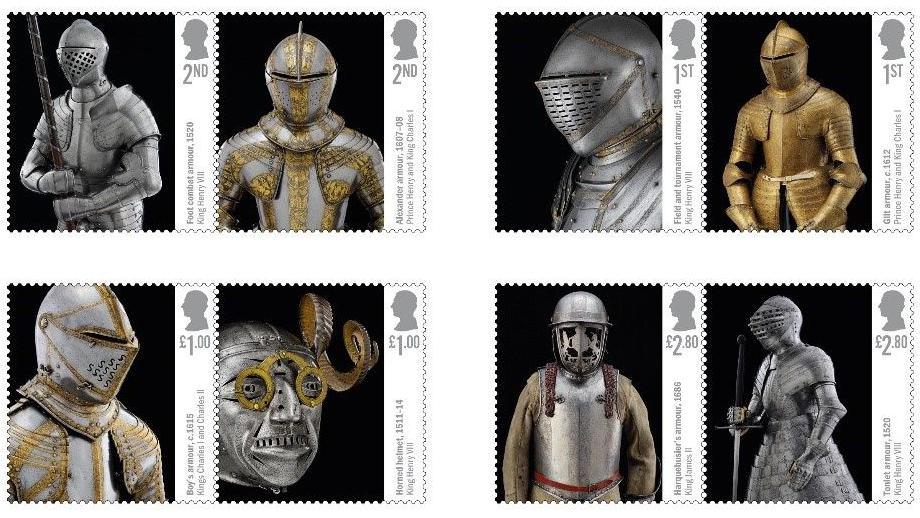British doctor honoured on stamps for remote islands
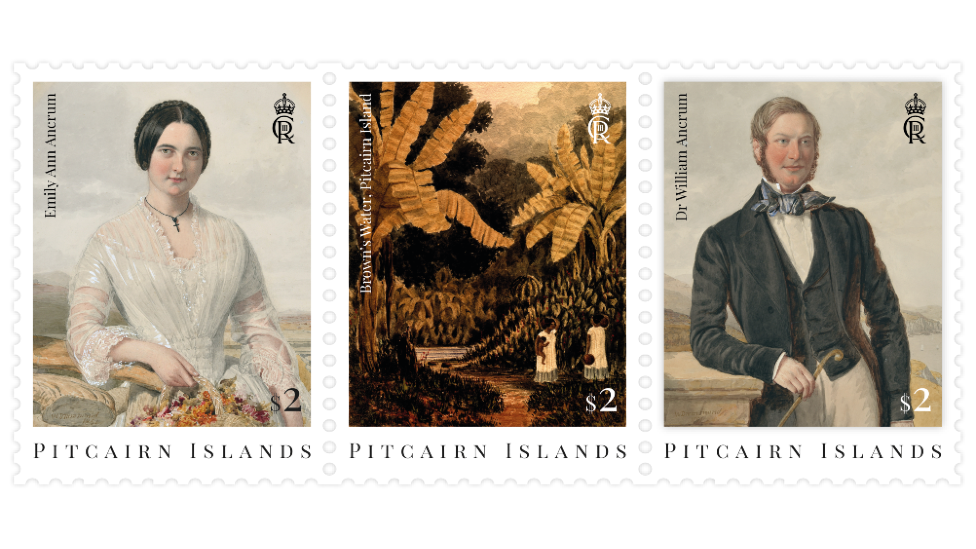
The stamps had to be approved by the King before being used
- Published
A historian researching his wife's ancestors has helped to get their portraits issued on a stamp series by one of the world's most remote places, the Pitcairn Islands.
Michael Richards, from Cheltenham in Gloucestershire, received a set of ledgers from his wife's great-great-great-grandfather, Dr William Ancrum.
In the 1850s, Dr Ancrum and his wife Emily cared for children of Pitcairn residents in a hospital in Valparaíso, Chile, but Mr Richards was told by the Pitcairn Government that all records of Dr Ancrum's work had been lost.
The government asked for Mr Richards' family portraits to issue on stamps celebrating friends of the remote islands.
The Pitcairn Islands are a British Overseas Territory in the southern Pacific Ocean, with a population of just 42 people.
They have no airport, and are only accessible by a two-day journey from French Polynesia on a supply boat.
Many of the islanders are descended from mutineers of the HMS Bounty.
Stamps from the island are highly prized by philatelists (those who study and collect stamps) because of the Pitcairns' remoteness, and sales used to make up around 90 to 95% of the income required to run the island before emails took over, according to Pitcairn Mayor Simon Young.
"We're very grateful to anybody who has helped assist the development of the islands over the years, and the Ancrums are a good example of that," he added.
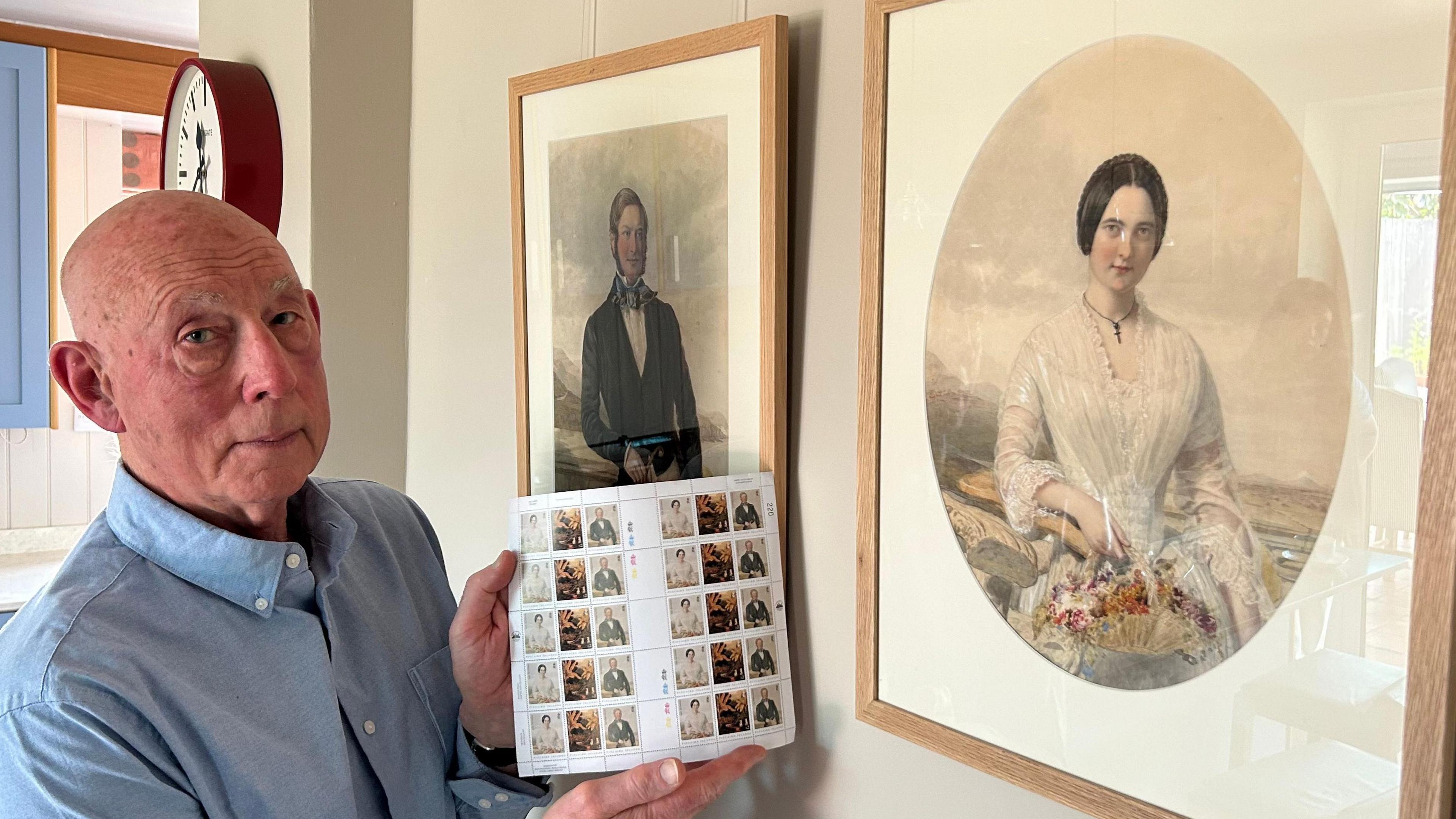
Michael Richards offered his family's portraits of Dr Ancrum and Emily Ancrum for the Pitcairn Island stamp set
Dr Ancrum developed a smallpox vaccine for the island's population, while Mrs Ancrum taught the women of the island domestic skills.
"I thought that if the Ancrums had been so caring of the islanders, wouldn't it be wonderful historically if their legacy in the Victorian scrapbooks I have could be put to some use producing stamps which would generate revenue for the islands," Mr Richards said.
His family portraits had to be given royal approval from King Charles III before being issued.
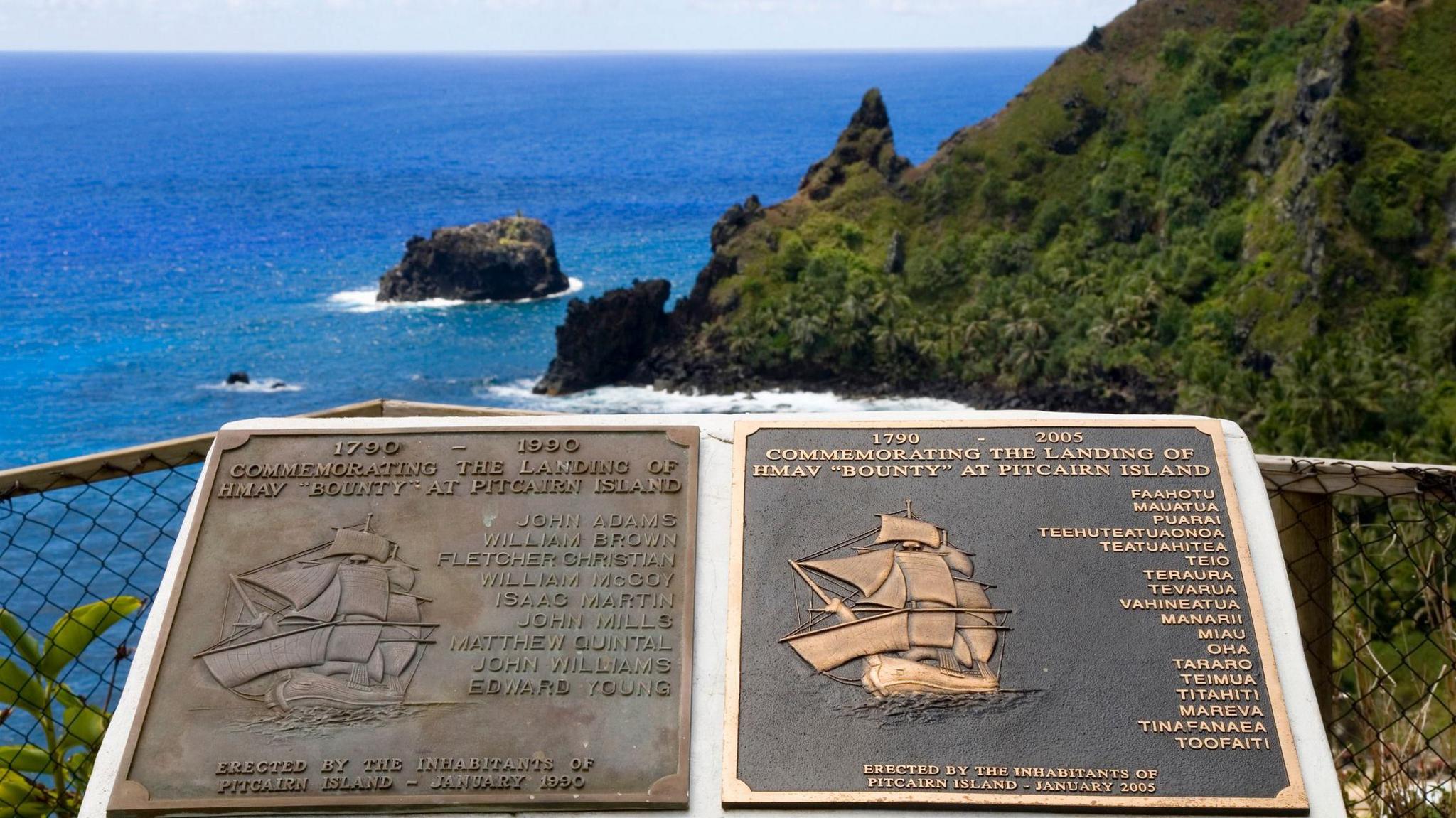
Many of the Pitcairn islanders are direct relatives of the Bounty mutineers who settled there in 1790
Later in his life, Dr Ancrum returned to Gloucestershire, where he served 27 years as chairman of the Gloucestershire County Infirmary, and helped to found the Coney Hill mental hospital.
A portrait of him hangs in the Gloucestershire Royal Hospital boardroom, where Mr Richards, a former anaesthetist, used to attend meetings.
"I suddenly realised the painting was one I found in the family archives and I'd been walking past it for nearly 30 years without realising it was a relative.
"The stamps are beautiful, I think Dr Ancrum and Emily would be absolutely proud to see their images and their story being celebrated in this way," he said.
Get in touch
Tell us which stories we should cover in Gloucestershire
Follow BBC Gloucestershire on Facebook, external, X, external and Instagram, external. Send your story ideas to us on email or via WhatsApp on 0800 313 4630.
Related topics
- Published1 January
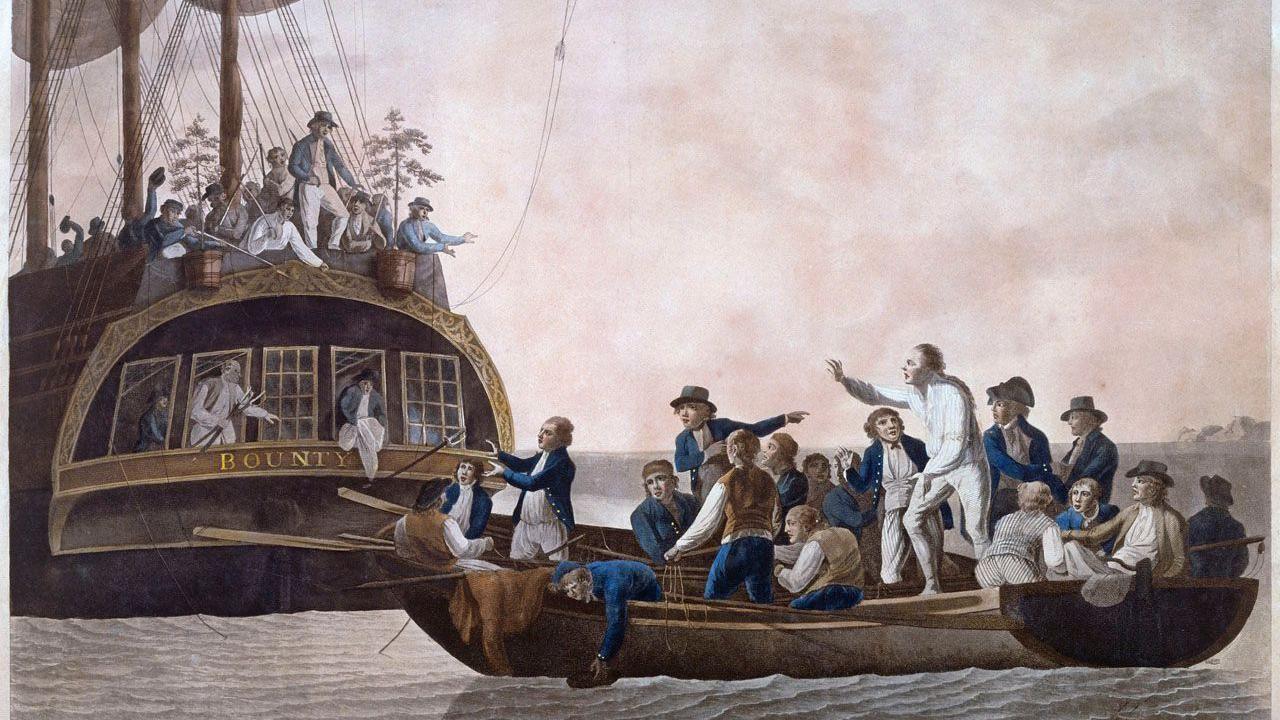
- Published20 March
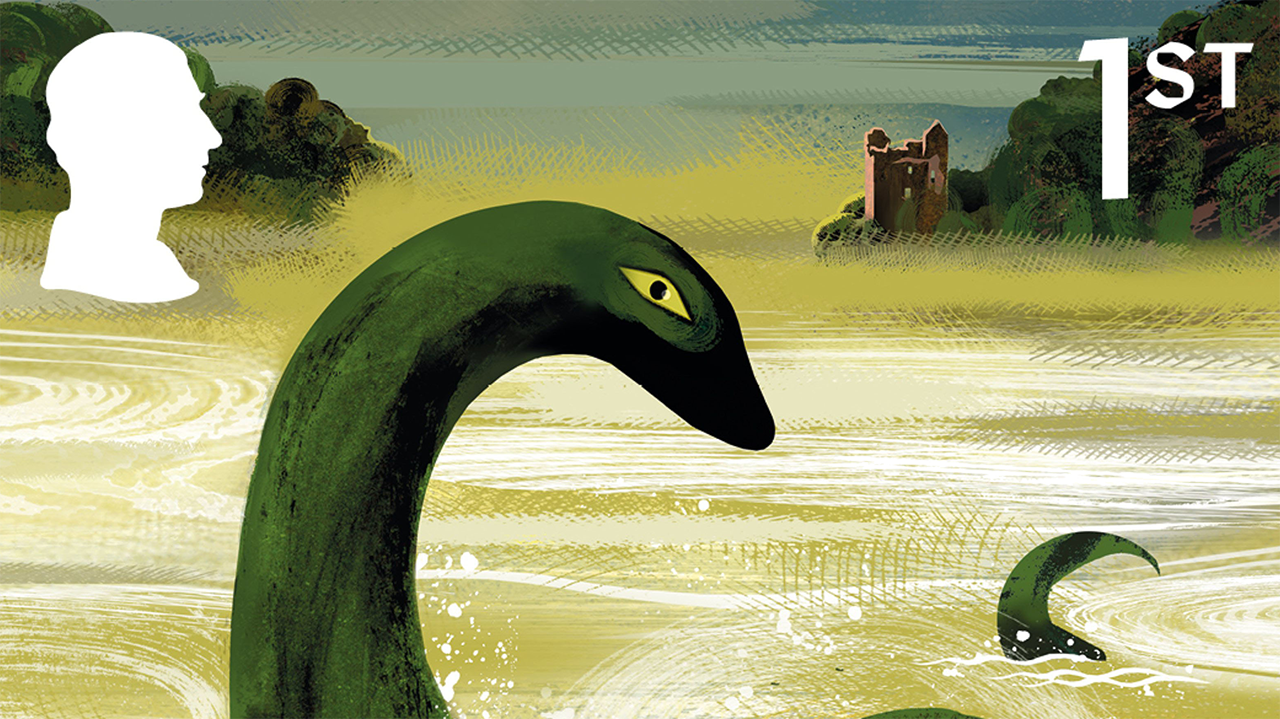
- Published23 January
